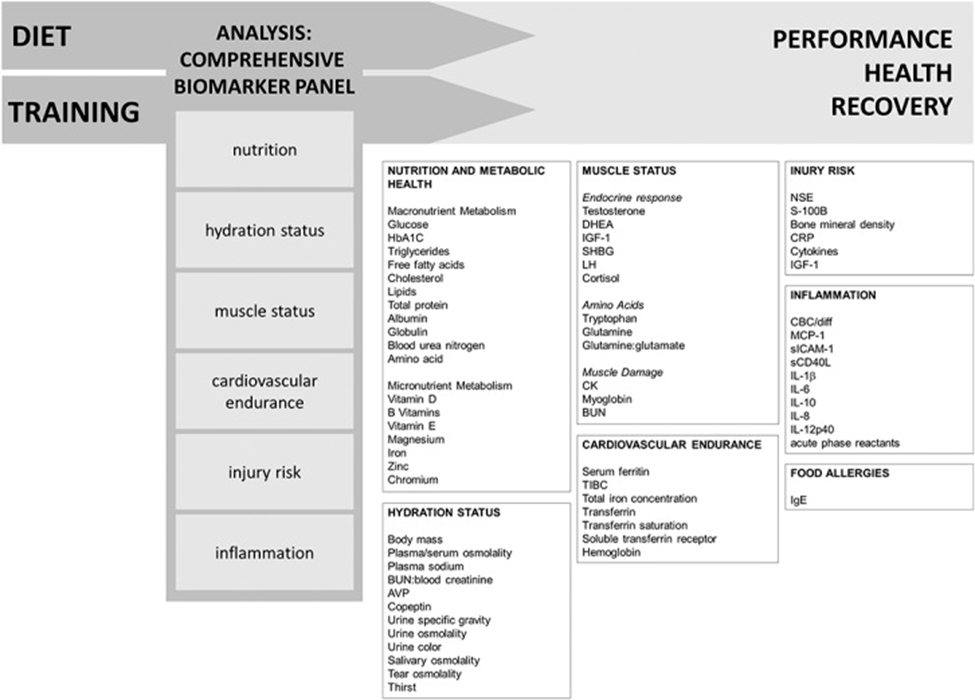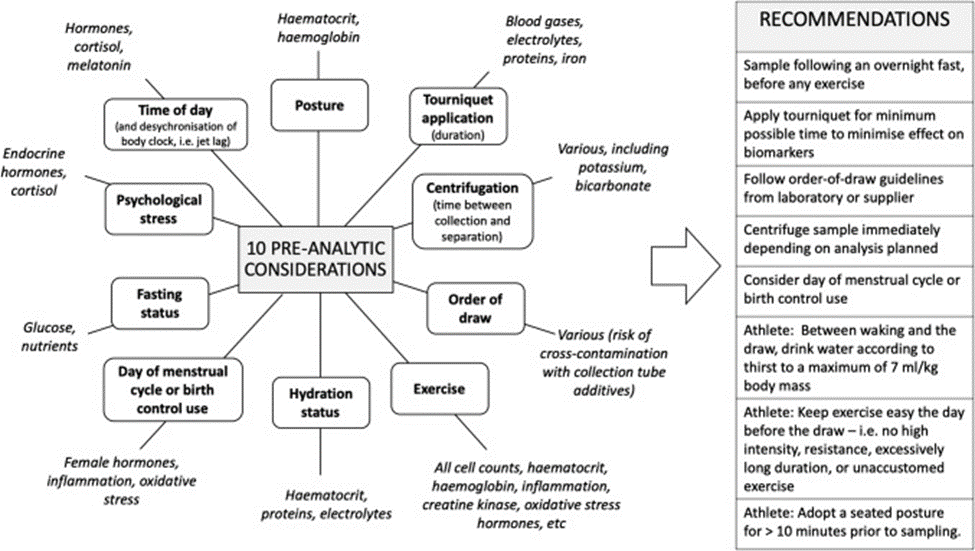What would be your recommended biomarkers to identify the root causes of a drop in energy and sport performance in endurance runners?
FBCA can help identify nutrient & metabolic deficiencies that contribute to reduced energy & performance in athletes. Evaluate sufficiency of vitamins, minerals, & energy cofactors, as well as biomarkers of inflammation, oxidative stress, anemia, etc
A thorough assessment of an athlete’s nutrition and metabolic status may be necessary to pinpoint underlying causes of reduced energy and performance or outright fatigue. Be sure that individuals are consuming adequate calories and replenishing glycogen regularly as low levels are a common cause of fatigue. Adequate protein intake is essential as well (Larson 2017). Sleep habits, hydration, and possible underlying viral or bacterial infection should be evaluated.
Low hemoglobin, the oxygen-carrying component of red blood cells, can affect oxygenation and energy generation in muscles, including the heart muscle. Although serum hemoglobin can vary due to changes in blood volume and hydration status, verified reductions should be investigated further (Pedlar 2019).
An array of biomarkers can help assess nutrient and metabolic status and should help reveal the source of reduced energy in athletes. B vitamins and CoQ10 are especially vital to energy generation. Further intracellular evaluation of reduced serum nutrient markers can also be performed. Remember, hydration and sleep status are also essential to energy levels.
A full medical history and workup may be indicated, including an evaluation of thyroid function.
FBCA Biomarkers
- Red blood cell indices including H/H, MCV, MCH, MCHC, RDW (will also provide some information about B6, B12, folate status).
- Iron status biomarkers
- Electrolytes including sodium, potassium, chloride, bicarbonate, magnesium, and calcium, etc.
- Oxidative stress markers including GGT (elevations may indicate increased glutathione need), albumin, globulin, bilirubin, uric acid, cholesterol, etc.
- Inflammation markers including hs-CRP, glycA, fibrinogen, homocysteine, albumin
- Protein/muscle biomarkers including creatinine, creatine kinase, growth hormone, IGF-1, ALT, AST, etc.
- Anabolic and catabolic status including testosterone, cortisol, testosterone/cortisol ratio, urea, etc.
- Nutrient status including Omega-3 Index, vitamin C, vitamin D, CoQ10 (important to energy generation also), magnesium, calcium, etc. Evaluation of RBC indices and homocysteine will provide information on B vitamin status.

Source: Lee et al. 2017. This is an open-access article distributed under the terms of the [R]

Source: Pedlar et al.2019. This article is distributed under the terms of the Creative Commons Attribution 4.0 International License
References
Larson-Meyer, D Enette et al. “Assessment of Nutrient Status in Athletes and the Need for Supplementation.” International journal of sport nutrition and exercise metabolism vol. 28,2 (2018): 139-158. doi:10.1123/ijsnem.2017-0338
Lee, Elaine C et al. “Biomarkers in Sports and Exercise: Tracking Health, Performance, and Recovery in Athletes.” Journal of strength and conditioning research vol. 31,10 (2017): 2920-2937. doi:10.1519/JSC.0000000000002122 This is an open-access article distributed under the terms of the
Pedlar, Charles R et al. “Blood Biomarker Profiling and Monitoring for High-Performance Physiology and Nutrition: Current Perspectives, Limitations and Recommendations.” Sports medicine (Auckland, N.Z.) vol. 49,Suppl 2 (2019): 185-198. doi:10.1007/s40279-019-01158-x This article is distributed under the terms of the Creative Commons Attribution 4.0 International License
Sánchez-Cuesta, Ana et al. “High coenzyme Q10 plasma levels improve stress and damage markers in professional soccer players during competition.” International journal for vitamin and nutrition research. Internationale Zeitschrift fur Vitamin- und Ernahrungsforschung. Journal international de vitaminologie et de nutrition, 1-12. 8 Jul. 2020, doi:10.1024/0300-9831/a000659
![kb-odx-application-logo-white.png]](https://kb.optimaldx.com/hs-fs/hubfs/kb-odx-application-logo-white.png?height=50&name=kb-odx-application-logo-white.png)